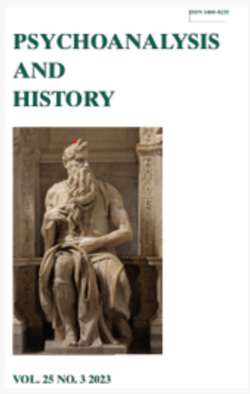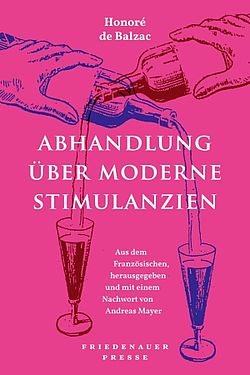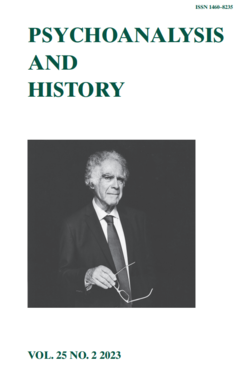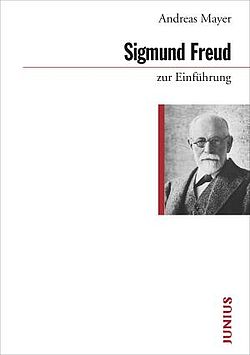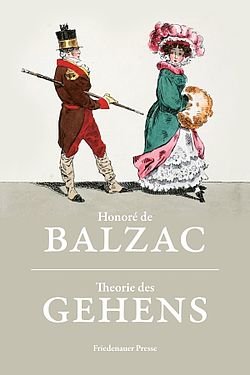Prof. Dr. Andreas Mayer | Chercheur associé
Institution principale
:
CNRS
|
Position
:
Directeur de recherche CNRS
|
Discipline
:
Histoire
,
Histoire des sciences
|
former
Départment
:
Centre Alexandre Koyré, EHESS
Biographie
Titres universitaires
2001 Doctorat en sociologie, Universität Bielefeld
2013 Habilitation en histoire, Universität Bremen
Positions professionnelles
2018 Directeur de recherche CNRS
2014 Chargé de recherche CNRS, Enseignement à l'Ecole des Hautes Etudes en Sciences Sociales (EHESS), Paris
2013 Heisenberg Fellow, University of Bremen
2007-2013 Research Scholar, Max Planck Institute for the History of Science Berlin
2005-2007 Wellcome Research Fellow and Lecturer, Department of History and Philosophy of Science, University of Cambridge
Distinctions
2019-2020 Fellow Wissenschaftskolleg zu Berlin
2018 Médaille de bronze CNRS
2014 Prix "Geisteswissenschaften International" (Deutscher Börsenverein) pour la traduction anglaise de "Wissenschaft vom Gehen" (S. Fischer, 2013)
2013 Heisenberg Fellowship, DFG
Traduire l‘inconscient : pour une histoire transnationale de la psychanalyse
Communications et publications récentes :
"Freud und die Geschichte der Psychoanalyse: Jenseits der biografischen Illusion", Abendkolloquium, Wissenschaftskolleg zu Berlin, 13.5.2020
https://www.wiko-berlin.de/wikothek/multimedia/freud-und-die-geschichte-der-psychoanalyse-jenseits-der-biografischen-illusion
“The Ambivalent Translator. On Psychoanalysis, Philology, and Translation”, Institute for Cultural Inquiry, Berlin 27.10.2020 (https://www.ici-berlin.org/events/andreas-mayer/) https://www.youtube.com/watch?v=naxEFliRy1o
– Mayer, Andreas, "The Ambivalent Translator. How to Write the History of Psychoanalytic Translations." Psychoanalysis and History (2023, in press).
– Mayer, Andreas, "Partager des choses oniriques: auto-analyses et traductions après Freud." Communications 108 (2021): 215-225.
– Mayer, Andreas, "Wie schreibt man keine Freud-Biographie." Zeitschrift für Ideengeschichte, 14/4 (2020): 68-84.
– Mayer, Andreas, "Freud übersetzen. Historische und theoretische Reflexionen zu einem frühen Übersetzungsmodell in der Psychoanalyse." Geschichte der Philologien, 57-58 (2020): 84-100.
The Ambivalent Translator: Towards a History of Psychoanalytic Translations
03 décembre 2023Andreas Mayer , https://www.euppublishing.com/toc/pah/25/3?widget=journaleditorialboard#de6dc34d-c714-4ed7-8457-32996500e695-b6de7b7c-de82-45a5-9538-313dd15c6659
Collection: Psychoanalysis and History
ISBN: Print ISSN: 1460-8235 / Online ISSN: 1755-201x
in Psychoanalysis and History Volume 24, Issue 3, pp. 271-296
An influential strand within modern translation studies has drawn a portrait of the translator as a deeply ambivalent figure, charged with the challenging task of preserving the foreign of the original work within the new version, and thus as inevitably torn between two languages and cultures. The case of the first English translations of Freud's work, undertaken by Abraham Arden Brill, is used here to demonstrate that a detailed historical and philological analysis of textual practices can help us situate the figure of the ambivalent translator in its proper context, namely within a historical model of translation. Retracing this model and its ramifications also has larger implications for an approach that should allow us to understand the relational, affective and institutional bonds connecting authors, translators and readers in global processes of cultural transmission of the human sciences.
ISBN: 978-3-7518-8004-6
Aus dem Frz. übersetzt, herausgegeben und mit einem Nachwort versehen von Andreas Mayer
Balzacs Exzesse mit Kaffee bei der nächtlichen Schreibarbeit an seiner monumentalen Menschlichen Komödie sind legendär. Weniger bekannt ist, dass dieser berühmteste Kaffeetrinker der europäischen Literatur 1839 eine Abhandlung über moderne Stimulanzien veröffentlicht hat, die als eine allgemeine Physiologie der Exzesse mit den Genussmitteln und Drogen der westlichen Zivilisation angelegt ist. Balzac sucht hier das Umschlagen von Lust in Qual zu fassen, angesichts der fatalen Spiralbewegung, die den Menschen vom bewussten Akt des Genießens zur willenlosen Hingabe an die Sucht treibt. Dabei testet der Schriftsteller seine vielfach bis heute gültigen Grundaxiome auch anhand einer Reihe von Selbstexperimenten mit Wein, Kaffee und Tabak. Doch Balzac ist sich bewusst, dass sich die Folgen des Konsums nicht auf die Person beschränken. Denn auch die Geschicke eines ganzen Volkes hängen offenbar von seiner Ernährungsweise ab – so mag Russland eine durch den Alkohol aufrechterhaltene Autokratie sein, und wer weiß, ob der übermäßige Schokoladenkonsum nicht eine entscheidende Rolle beim Niedergang des spanischen Imperiums gespielt hat.
Balzacs Abhandlung über moderne Stimulanzien bietet demgegenüber einen vollkommen risikofreien Lesegenuss. Neben diesem hier erstmals separat edierten Stück der Analytischen Studien enthält der Band auch den bisher unübersetzten Text »Das Opium«, der ihn in einem faszinierenden Dialog mit dem bekennenden englischen Opiumesser Thomas De Quincey zeigt.
https://www.matthes-seitz-berlin.de/buch/abhandlung-ueber-moderne-stimulanzien.html
ISBN: Print ISSN: 1460-8235
https://www.euppublishing.com/toc/pah/25/2
This Special Section on Carlo Ginzburg and psychoanalysis presents two conversations, turning on the role of Freud. The first discussion is documented by a selection of Ginzburg’ s correspondence with the great Italian philologist and intellectual Sebastiano Timpanaro. These letters, which appear here for the first time in English translation, not only constitute an important source for the Italian reception of psychoanalysis in its relation to the emergence of microhistory, by opening a window on to the political-intellectual microcosm of the 1970s, but also allow us to reread the work of both scholars in the light of an epistemological debate crucial to our current understanding of psychoanalysis and the human sciences at large. The second conversation, drawn from a number of public and private discussions between Carlo Ginzburg and Andreas Mayer recorded in 2022 takes this epistemological debate as a starting point for a retrospective reflection on some of the major historiographical shifts that occurred within the past two decades, both in Ginzburg’ s own approach and with regard to the role Freud’ s work has played in the history of the human sciences more generally.
Textual Criticism, Psychoanalysis and the Historical Method. A Conversation
01 août 2023Andreas Mayer , Carlo Ginzburg
In this conversation, Carlo Ginzburg and Andreas Mayer address a number of epistemological issues central to the articulation of historiography and psychoanalysis: the notion of unintentional revelations (or involuntary testimonies), the relation between the specificity of cases and the generalizations implied by them, the problem of reopening old cases and of their proper contextualization, and the question to what extent translation can serve as a metaphor for the work of psychoanalysts and historians.
Edition: Junius
ISBN: 978-3-88506-090-1
Wenige Autoren haben das 20. Jahrhundert so sehr geprägt wie Sigmund Freud, der mit der Psychoanalyse nicht nur ein neues theoretisches Denkgebäude und psychotherapeutisches Verfahren, sondern auch eine weltweite Organisation begründet hat. Freuds Schriften haben eine kaum überschaubare Fülle an Sekundärliteratur hervorgebracht und waren Gegenstand zahlreicher, bis heute andauernder Kontroversen. Diese Einführung des Wissenschaftshistorikers Andreas Mayer sucht einen Neuzugang, indem sie deren Genese in ihren wissenschafts- und kulturhistorischen Kontexten erhellt und ihren kollektiven Charakter aufzeigt. Im Gegensatz zu einer Auffassung, die die zentralen Begriffe Freuds als stabile begriffliche Einheiten begreift, wird eine dynamische Perspektive entfaltet, die die Spuren des historischen Prozesses an den Texten selbst aufzeigt.
https://www.junius-verlag.de/Programm/Sigmund-Freud-zur-Einfuehrung.html
ISBN: 978-3-7518-0622-0
Aus dem Frz. übersetzt, herausgegeben und mit einem Nachwort versehen von Andreas Mayer
Balzacs Essay zur Theorie des Gehens, erstmals 1833 publiziert, zählt zu den bis heute kaum bekannten Schlüsseltexten seines Hauptwerks Die menschliche Komödie. In diesem formal einzigartigen und originellen Text bestimmt der junge Erfolgsautor seinen historisch-anthropologischen Zugriff auf die Gesellschaft seiner Epoche, als deren »Sekretär« er sich hier erstmals bezeichnet. Ausgehend von Beobachtungen an Spaziergängern auf den Pariser Boulevards, entwirft er ein »Gesetzbuch der Gangarten«, dessen Axiome zielsicher vom äußeren auf das innere Leben schließen. Die Gangart eines Menschen gilt als »Physiognomie des Körpers«, die das »Denken im Vollzug« und mit ihm alle menschlichen Tugenden und Laster, Arbeitsgewohnheiten und Krankheiten enthüllt. Auf zugleich unterhaltsame und gelehrte Weise verknüpft Balzac in seinem Essay die Demonstration seiner Methode mit wissenschaftlichen und philosophischen Reflexionen zur Praxis des Beobachtens und der Lage der Humanwissenschaften im Allgemeinen.
https://www.matthes-seitz-berlin.de/buch/theorie-des-gehens.html
